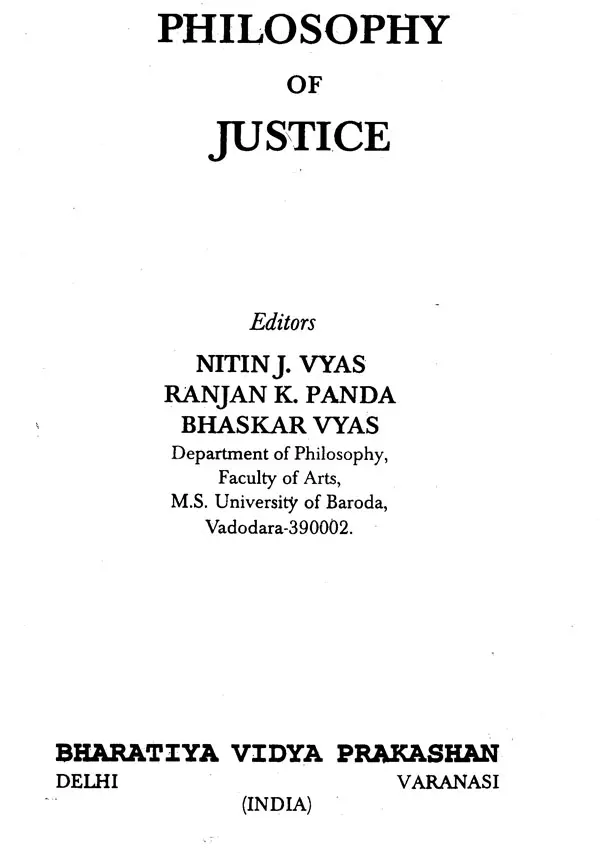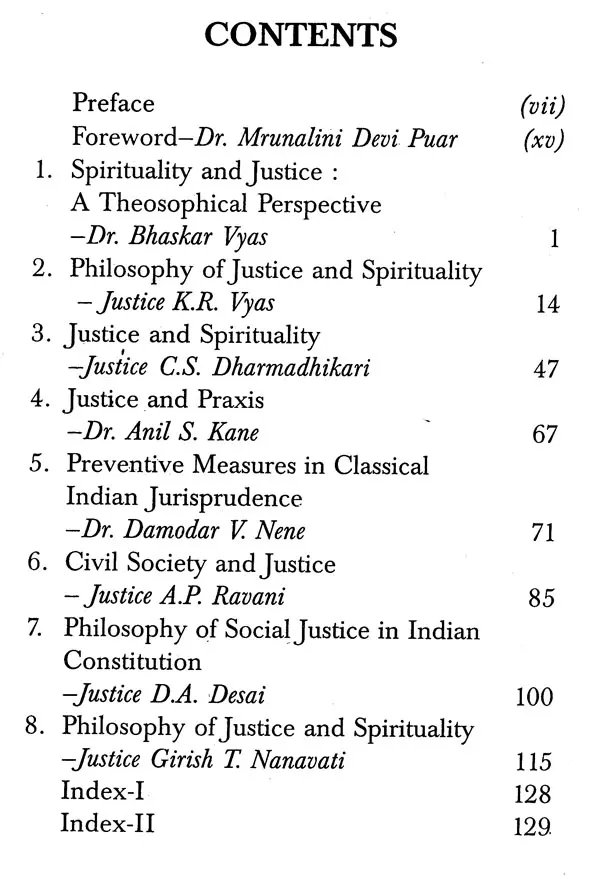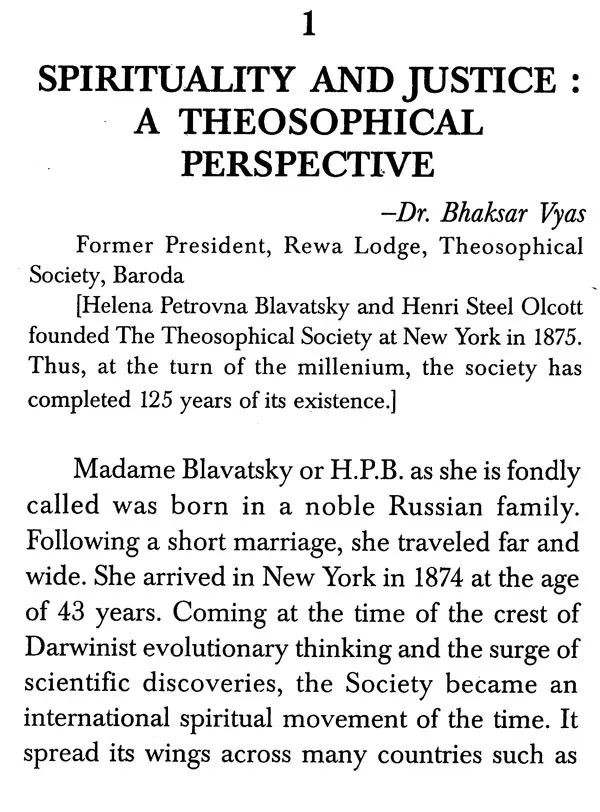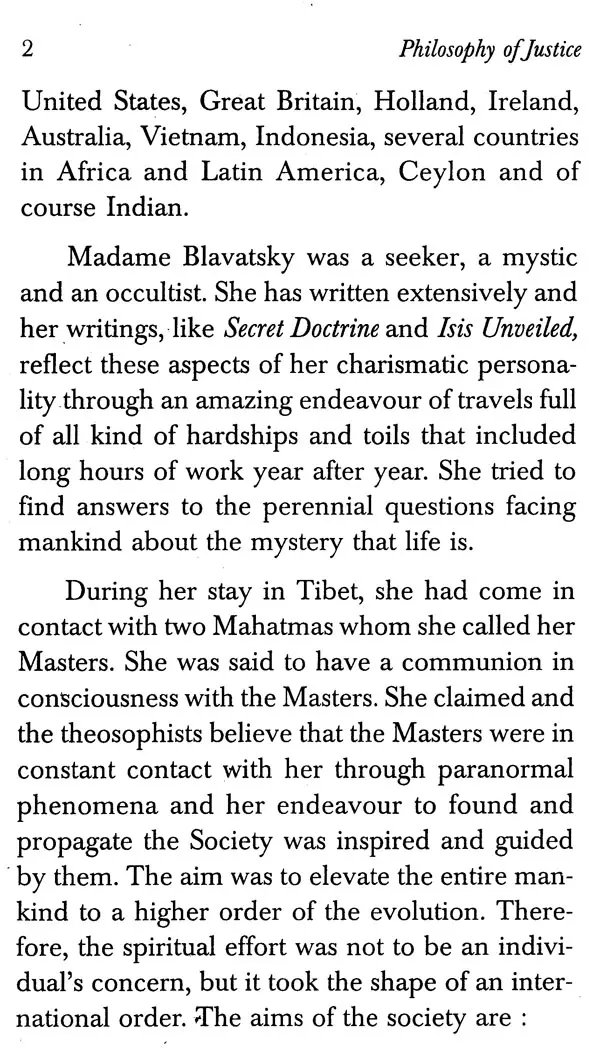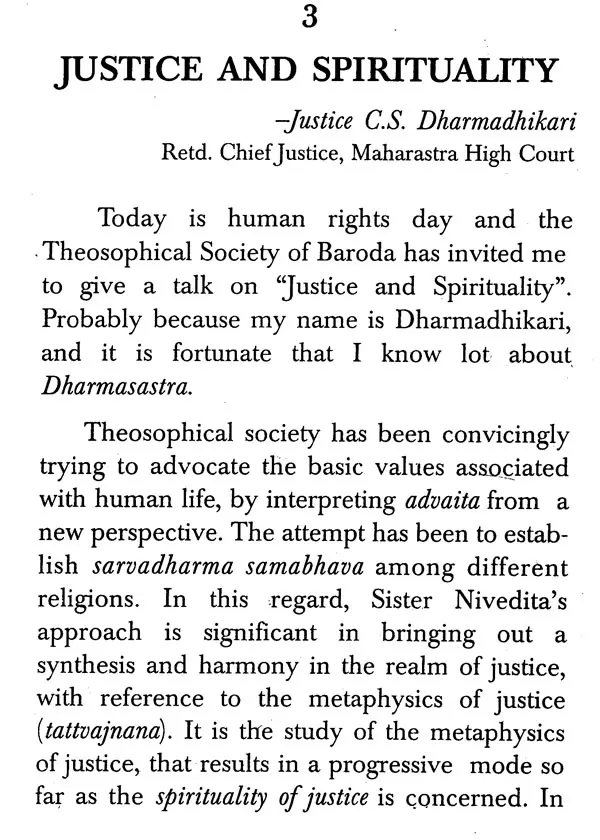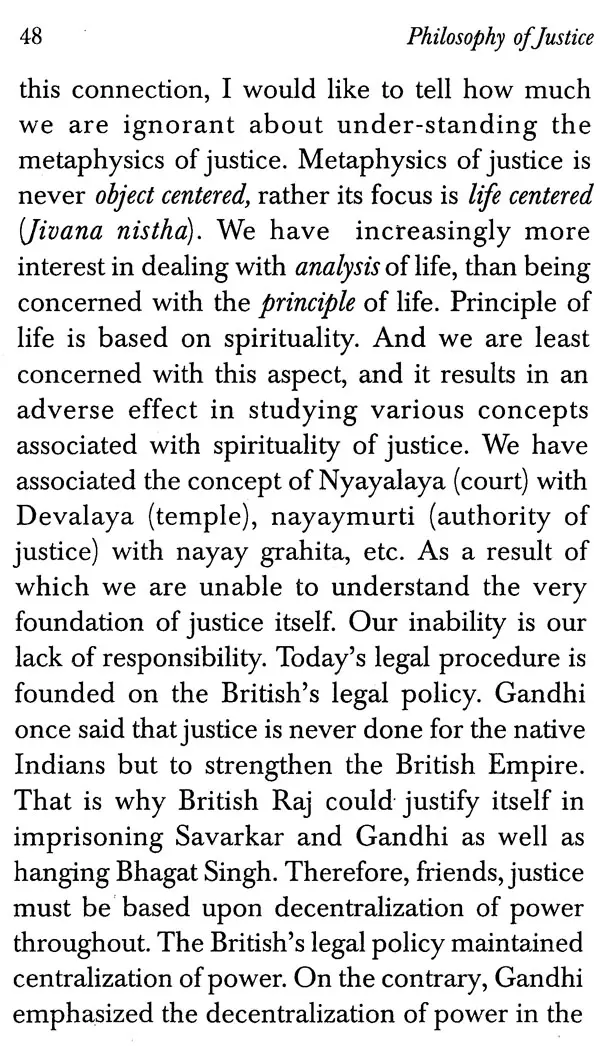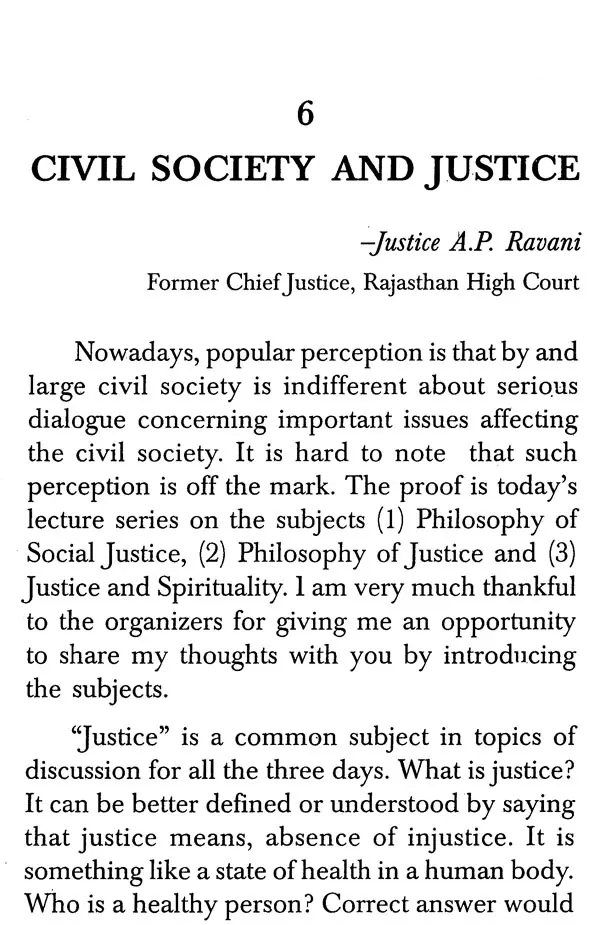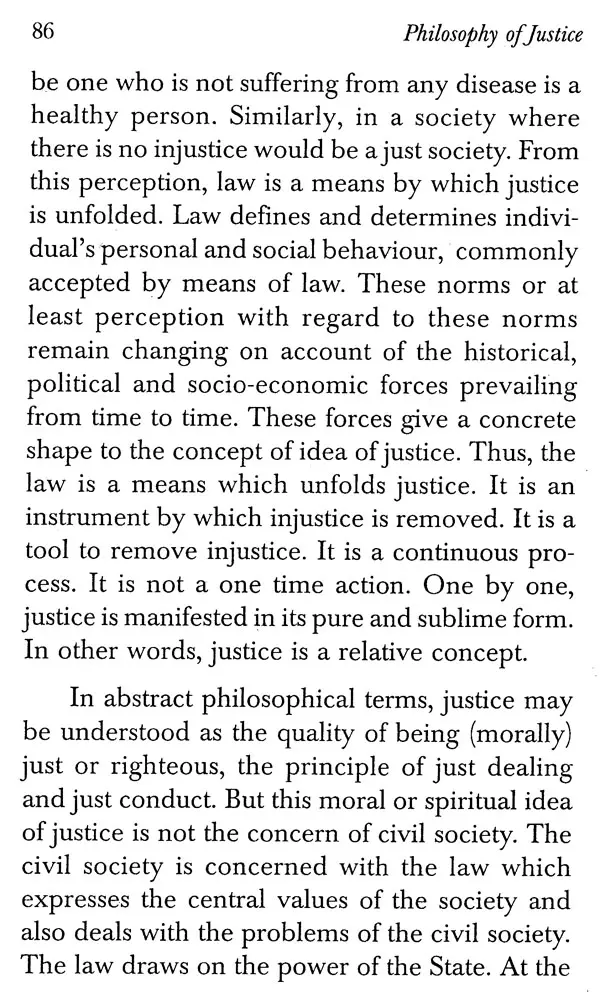
Philosophy of Justice
Book Specification
| Item Code: | UAT499 |
| Author: | Nitin J. Vyas, Ranjan K. Panda and Bhaskar Vyas |
| Publisher: | Bharatiya Vidya Prakashan, Delhi |
| Language: | English |
| Edition: | 2003 |
| ISBN: | 8121701759 |
| Pages: | 131 |
| Cover: | HARDCOVER |
| Other Details | 8.50 X 5.50 inch |
| Weight | 280 gm |
Book Description
Justice is an intrinsic part of human life. The construal of justice in human life is based on the natural laws and social laws. It is doubtless that the laws have tremendous impact on beings' interaction in the society. The progress of human civilization is dynamic and so also is the sense of justice. There is a constant urge in human life to lead a better just-society. Hence, the expansion of the civilization expands the horizon of moral laws. The conformity to moral laws stand as the basis of the fulfilment of higher human ideals. In this connection the growth and development of human civilization can be looked from the perspective of beings' pursuit of moral value of justice. However, understanding the nature of justice needs to be explicated from a sovereign autonomous level of beings' spiritual identity. Such level of consciousness will transcend the sense of local identity of being to the level of symbolization of values of life. It shows that mere performance of moral action is not enough, but morality is to be realized in one's own self fully. This supreme fulfilment is to be conceived in the context of social reality as such. These essays try to focus on the nature of justice from the spiritual perspective and go on claiming that metaphysics of justice is based on the spirituality of justice. Hence, the essays are about the Philosophy of Justice.
Throughout the progress of human civilization, the quest for an ideal form of justice, consciously or unconsciously persists in mankind. The intense urge for having a just society is man's distinct pursuit in social dynamism since the time of his progressive development to the state of a self-conscious being. It is an evidence of man's socializing nature. Thus, man's significance as an architect of law is more distinct than as a subject of law. Doubtless, the former is a result of the various processes of development in the later.
Therefore, besides the natural scientific laws and civil social laws as influencing man all over, there is a unique moral cultural law intrinsic to man, which is much meaningful as a human being essentially. The civil laws and the natural laws have encouraged and helped man in the progress and growth of civilization. Still the moral law stands as the basis of the fulfilment of human ideals, which are ultimately derived from the being itself. As a result one needs to look contextually at the contrasting dilemma of the human civilizational expanse on the one hand, and some deep sense of incompleteness on the other. Admitted that all legal progress so far have positively contributed with great hopes of future, but the same does not rule out the higher level of human existence pursuing the distinct moral direction instrinsic to man.
There is an old saying that a country would be governed better if philosophers were kings. Extending the epigram, I might say that "Justice" would be better administered if philosophers were judges. You have rightly chosen Mr. Justice D.A. Desai, to deliver the keynote address of this evening's topic, "Philosophy of Social Justice", for he makes a commendable combination of a philosopher and a judge, as you must have noted from his address. His weighty contribution has set the right tone and direction for the Madame Blavatsky Memorial Lecture Series.
I congratulate the organizers, and our University Department of Philosophy and the Theosophical Society of Baroda for conducting such a useful series of lectures at the very beginning of a new millenium.
As you are aware, we are going through a very critical time in our national history especially when we are utterly confused about our national identities and roles. Thus, the time has come when we need to define with clarity what we mean by "Social Justice". We all know that Madame Blavatsky and Mrs. Annie Besant of the Theosophical Society of India, fought resolutely for the cause of 'social justice', in its broadest sense. This nation owes much to them for the dynamic role they played in awakening India to its great heritage.
**Contents and Sample Pages**
